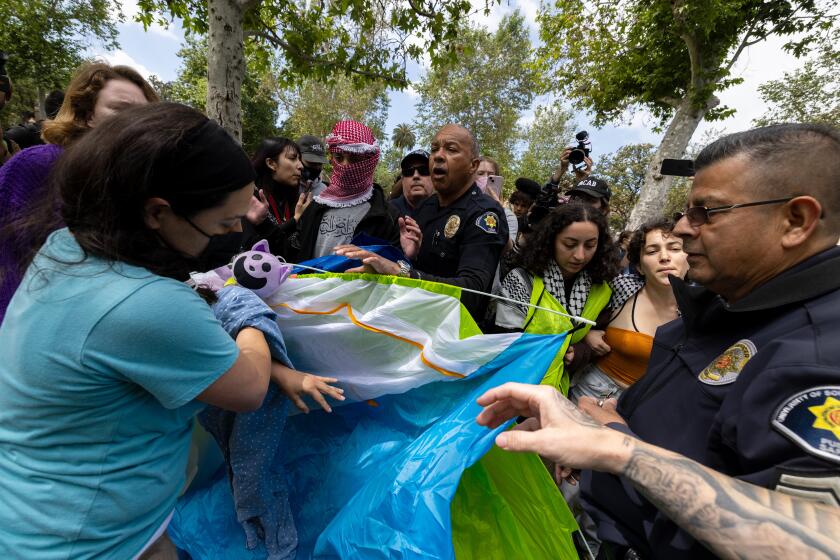Visas for victims
Since the collapse of comprehensive immigration reform this summer, legislators, including erstwhile reformers such as Sen. John McCain (R-Ariz.), have felt little compunction about pursuing enforcement-only measures while ignoring the 12 million illegal immigrants in this country.
Now, the federal government is finally working on the other half of the reform equation. This fall, U.S. Citizenship and Immigration Services will begin granting temporary legal status to illegal immigrants who have been victims of a crime and who cooperate with law enforcement.
The idea for this “U” visa -- soon to be available for up to 10,000 petitioners per fiscal year plus eligible family members -- is an old one. Part of the Victims of Trafficking and Violence Protection Act, which was passed nearly unanimously by Congress in 2000, it seeks to protect illegal immigrants from crime, recognizing their particular vulnerability and their reluctance to cooperate with investigations for fear of deportation.
In nearly seven years, not a single U visa has been granted; the agency claims post-9/11 bureaucratic reshuffling caused the delay. It did, however, offer “interim relief” to crime victims, granting work and travel authorization but no official legal status to about 5,800 out of 7,000 applicants.
The new visa will be retroactively available to those victims, along with any illegal immigrants who procure certification from a law enforcement agency that they’ve suffered crimes such as rape, domestic violence or extortion committed on U.S. ground. As long as the petitioner cooperates with law enforcement, the visa would protect him or her from deportation and grant employment authorization for four years. Three years after receiving a U visa (or three years after receiving interim relief), the immigrant would be eligible to apply for legal permanent residence, though the rules for adjusting status have yet to be clarified.
The new visas are an important humanitarian concession to immigrants who essentially have been twice victimized: first by erratic enforcement of immigration laws and the failure of Congress to pass a uniform fix, and second by criminals who prey on them knowing they’re less likely to turn to police. With each government effort to pursue enforcement -- from federal raids and proposed congressional measures against so-called sanctuary cities to dozens of immigration laws passed by states and cities -- illegal immigrants will increasingly avoid reporting crime even in cities such as L.A., where, by long-standing order, law enforcement does not inquire about immigration status.
And though the U visa could be abused, the broader benefit is evident. As presidential contender Rudolph W. Giuliani said in last week’s Republican debate (while his colleagues strove to outdo each others’ enforcement-only grandstanding): “If you are an illegal immigrant in New York City, and a crime is committed against you, I want you to report that, because . . . the next time a crime is committed, it could be against a citizen or a legal immigrant.”
More to Read
A cure for the common opinion
Get thought-provoking perspectives with our weekly newsletter.
You may occasionally receive promotional content from the Los Angeles Times.






